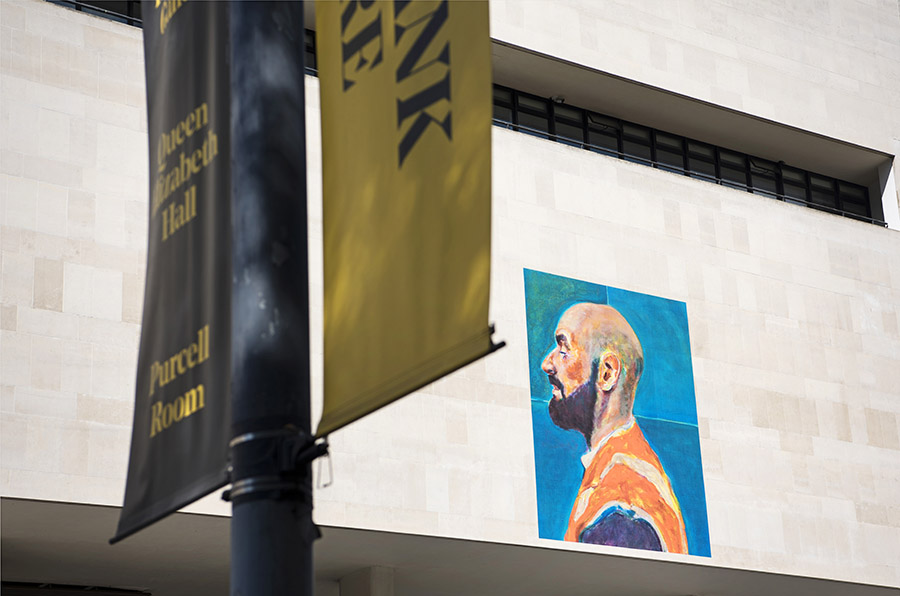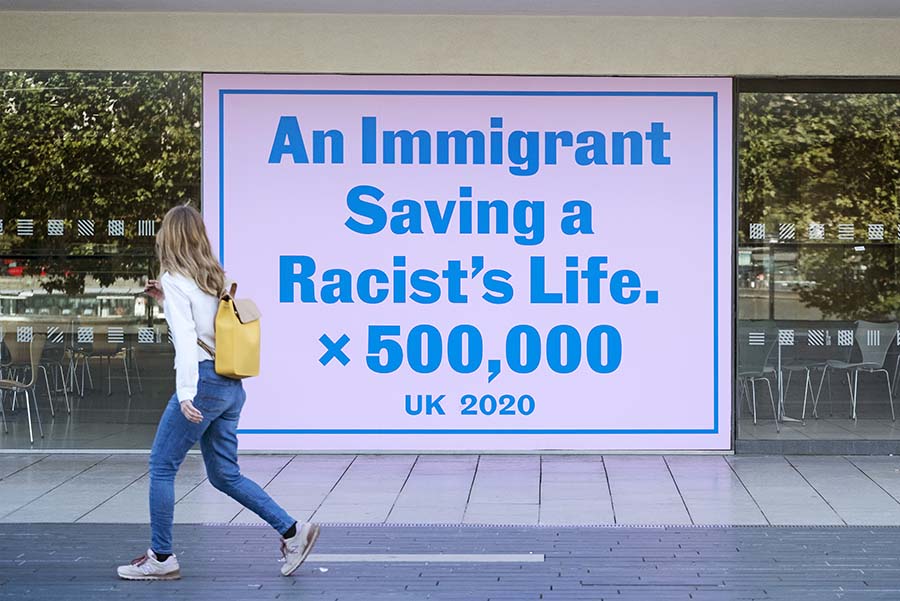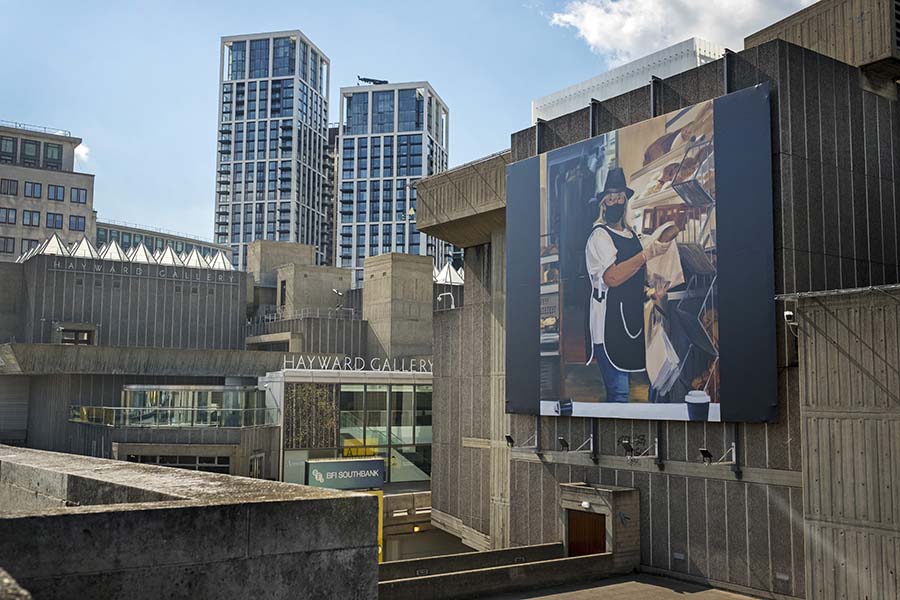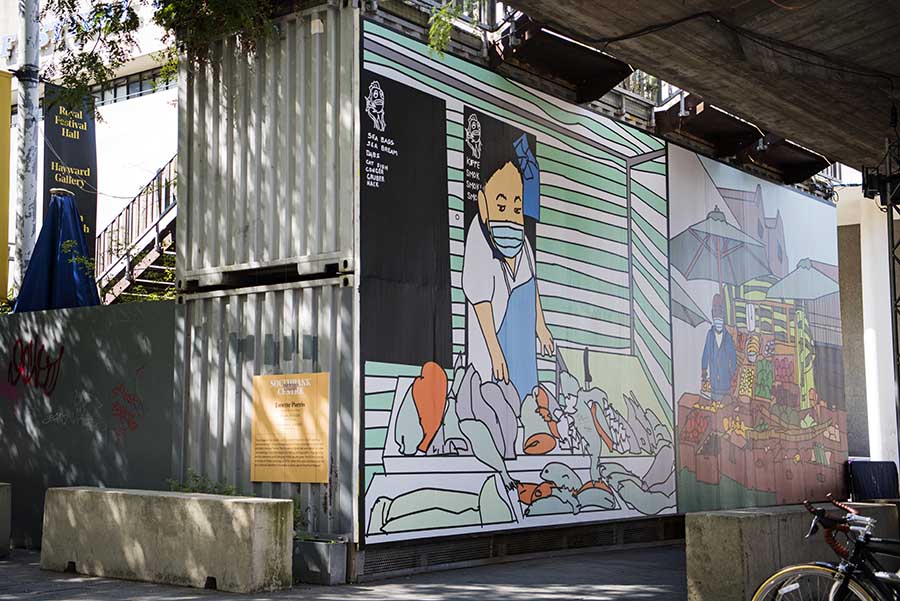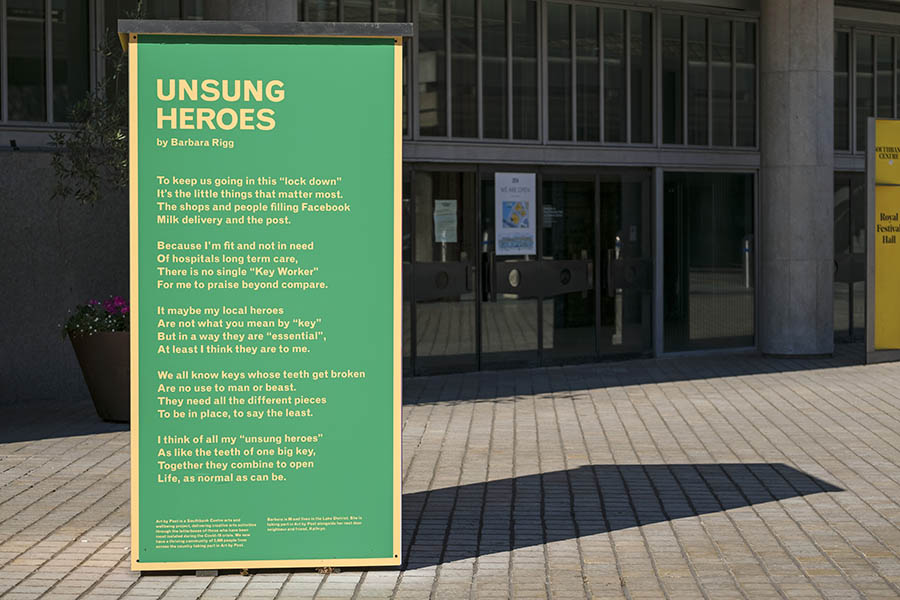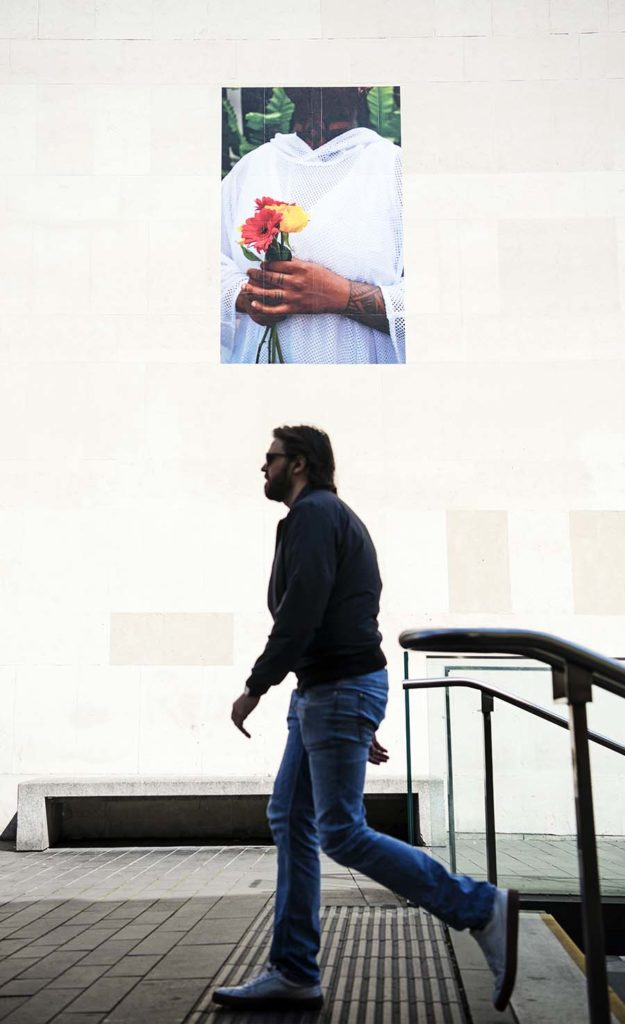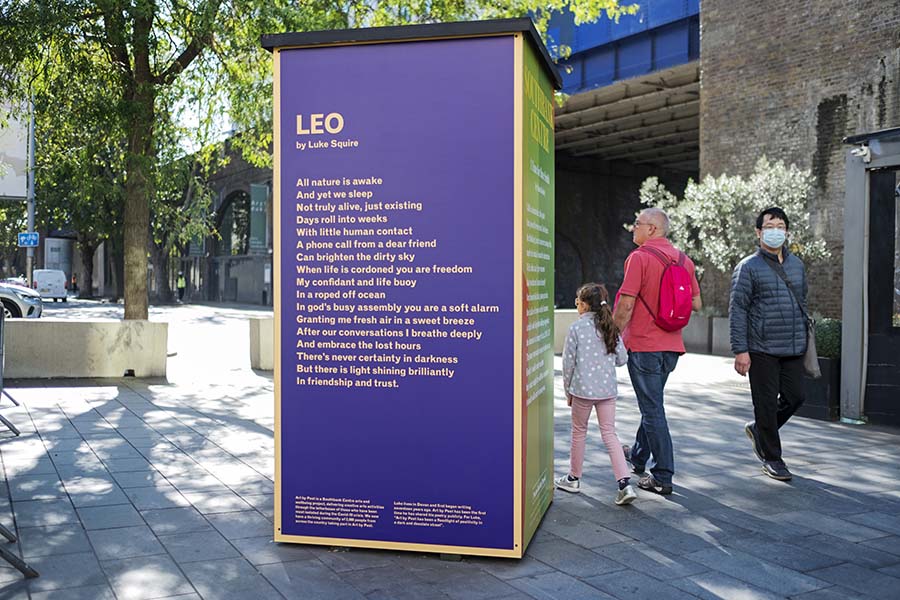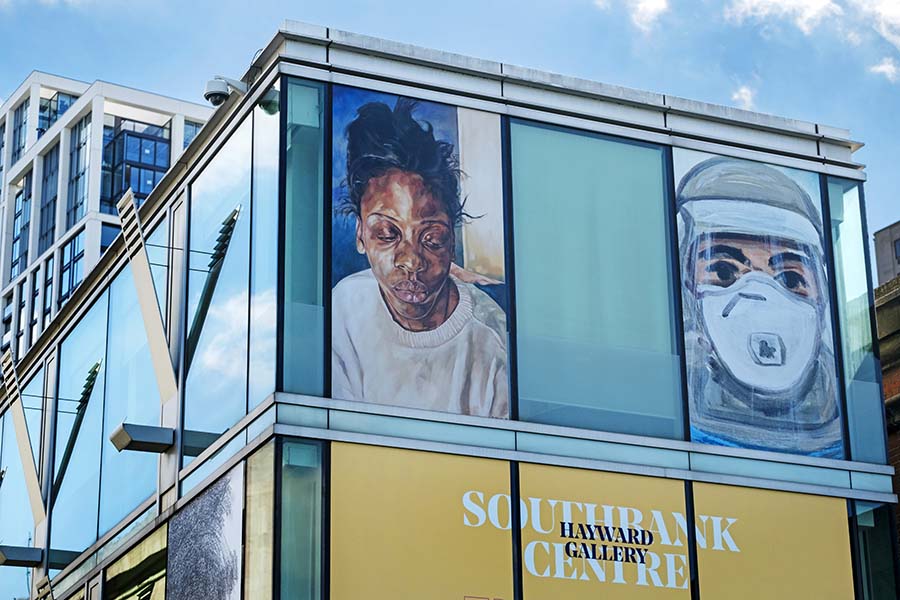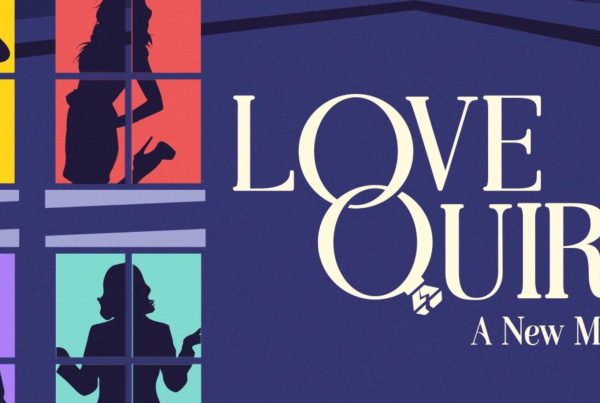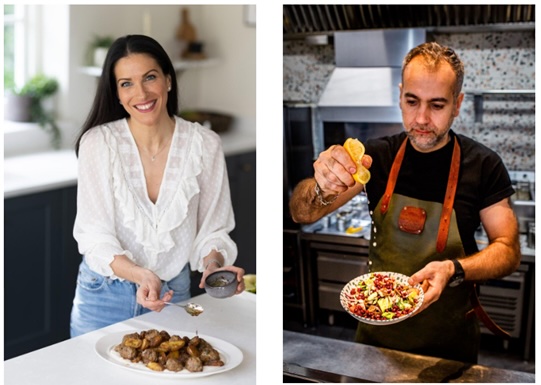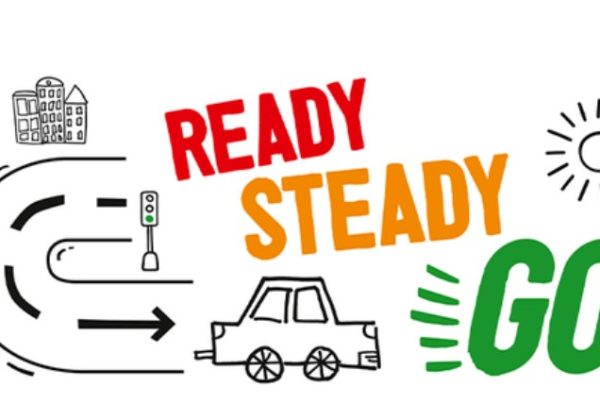London’s Southbank Centre has curated Europe’s first exhibition celebrating the contributions of key workers and frontline staff during the Covid-19 pandemic. Show your support and pay them a visit until November 7th.
Everyday Heroes is a free outdoor art and poetry exhibition, feauring more than 40 portraits of entirely ordinary but utterly remarkable people. The first of its kind in Europe, Southbank Centre pays respect to the health workers, bus drivers, faith workers and shop assistants who helped to keep the country going during a global crisis.
The portraits are rendered in a variety of materials, including paint charcoal, photography, collage, and language. Presented across the Southbank Centre’s outdoor areas as large posters and banners, the exhibition transforms the site into an outdoor gallery that is accessible to all, free of charge. It will also extend off-site, taking over billboards in London, Birmingham, Brighton, Cardiff, Glasgow, Manchester, and Sheffield.
For this exhibition, the Southbank Centre commissioned portraits from some of the UK’s leading contemporary artists, including Turner-Prize winner Jeremy Deller and ground-breaking painters Barbara Walker, Michael Armitage, and Ryan Mosley. Alongside their artworks, newly commissioned poems also celebrate and illuminate the often unsung lives of key workers, with contributions from highly-acclaimed poets like Simon Armitage, Jackie Kay, Ted Hughes, Roger Robinson, and rising stars like poet and nurse Romalyn Ante and Bristol’s City Poet Vanessa Kisuule.
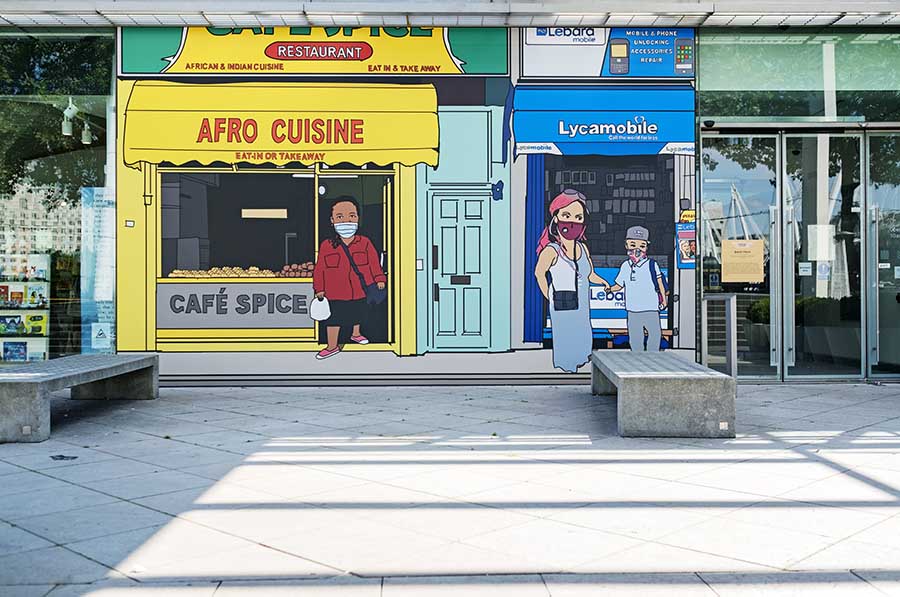
Janette Parris 
Jeremy Deller
Who’s exhibiting?
Many of the contributing artists and writers have chosen to portray family members, friends, or people from their local communities. Several have paid homage to the NHS and other essential frontline workers: Michael Armitage’s painting features a pair of paramedics maneuvering a stretcher into an ambulance, and Mahtab Hussain features his friend, dermatologist Dr A Shahid, who worked throughout the pandemic whilst heavily pregnant.
Lydia Blakeley presents three works in the exhibition, including a painting of her aunt Jacqui, a nurse at a community hospital in Oxfordshire. Though this period has been extremely stressful and difficult for key workers, the artist wanted to portray individuals during a moment of calm. Barbara Walker’s contributions to the exhibition depict NHS workers to whom the artist has a personal connection, including a painting of her daughter who is a frontline NHS worker, and who not only survived coronavirus but returned to work immediately upon recovery.
Matthew Krishanu has produced a group of portraits focussing on four female religious workers from Birmingham who continued to find ways to serve their community throughout the crisis. Ryan Mosley’s painting depicts his brother Paul, a train driver who has continued to work throughout the pandemic, while renowned fashion photographer and artist Juergen Teller portrays the two London bus drivers he photographed at London Waterloo.

Caroline Walker 
Janette Parris
Ryan Mosley 
Barbara Rigg
Other artists consider the ways in which our lives have changed. Jeremy Deller reflects on recent events in the UK with a graphic artwork that reads ‘An immigrant saving a racist’s life x 500,000’, which the artist describes as a word portrait of the UK in 2020. Silvia Rosi presents a series of photographs documenting her family’s daily life during lockdown.
The poetry portraits are equally arresting, personal and reflective of current times. In ‘Heatwave’, Romalyn Ante offers a visceral and affecting poem about her mother, who, like her, is a nurse. Poet and teacher Raymond Antrobus contributes ‘On touch’, written after interviewing NHS nurse Joan Pons Laplana. Poet Laureate Simon Armitage’s ‘The Omnipresent’ opens with a powerful description of graffiti on a motorway bridge stating ‘God is an ambulance’. Jackie Kay presents her new poem ‘Home’ which captures the unique position key workers have found themselves in during the pandemic.
Multi-Slam winning poet Vanessa Kirsuule wrote her Everyday Heroes commission freshly after her poem on the toppling of Edward Colston’s statue went viral. ‘Scrunchie’ depicts an everyday woman rejecting the notion of heroism. “Everyday Heroes gave me the opportunity to reflect on the micro effects of this global pandemic. Amid all the media flurry, it’s grounding to consider the combination of mundane and exceptional things that any given person carries out on a daily basis,” Kisuule says.
Everyday Heroes also features two poems by members of the public who have taken part in the Southbank Centre’s Art by Post scheme, Luke Squire and Barbara Rigg, and were selected by the Southbank Centre’s Head of Literature and Spoken Word.

Ivan Ifekoya 
Luke Squire 
Matthew Krishanu
The impact of the installation
“This extraordinary period in our history demands that arts organisations find new ways of responding to the moment and bringing art to the public. Everyday Heroes aims to celebrate those people who have helped to hold society together in one way or another over the course of this year. This kind of outdoor exhibition can play a crucial role in furnishing the inspiration which visual art and poetry provide to our collective imagination and civic life,” says Ralph Rugoff, Director of the Hayward Gallery, Southbank Centre. Cedar Lewisohn, Site Curator of the Southbank Centre adds that “art and literature helped so many people get through the recent lockdown months”.
This project animates the Southbank Centre’s outdoor areas post-pandemic, providing an opportunity for visitors to the site to encounter art and poetry as they visit the newly reopened Southbank Centre Market, autumn pop-ups and the restaurants, shops, and cafes across the site.
Find out more about Southbank Centre’s Everyday Heroes exhibition and watch video interviews with some of participating artists on southbankcentre.co.uk/whats-on/exhibitions/hayward-gallery-art/everyday-heroes.
There’s no pre-booking of time slots required, but remember to keep a safe distance from others and wear a face covering to enjoy your visit safely. According to Government guidelines, please stay at home for 14 days if you have symptoms of Covid-19 (cough, sore throat, or fever) and avoid mixing with people from different households in order to keep visitors and staff safe.
All images by Linda Nylind.
You might also enjoy reading:

